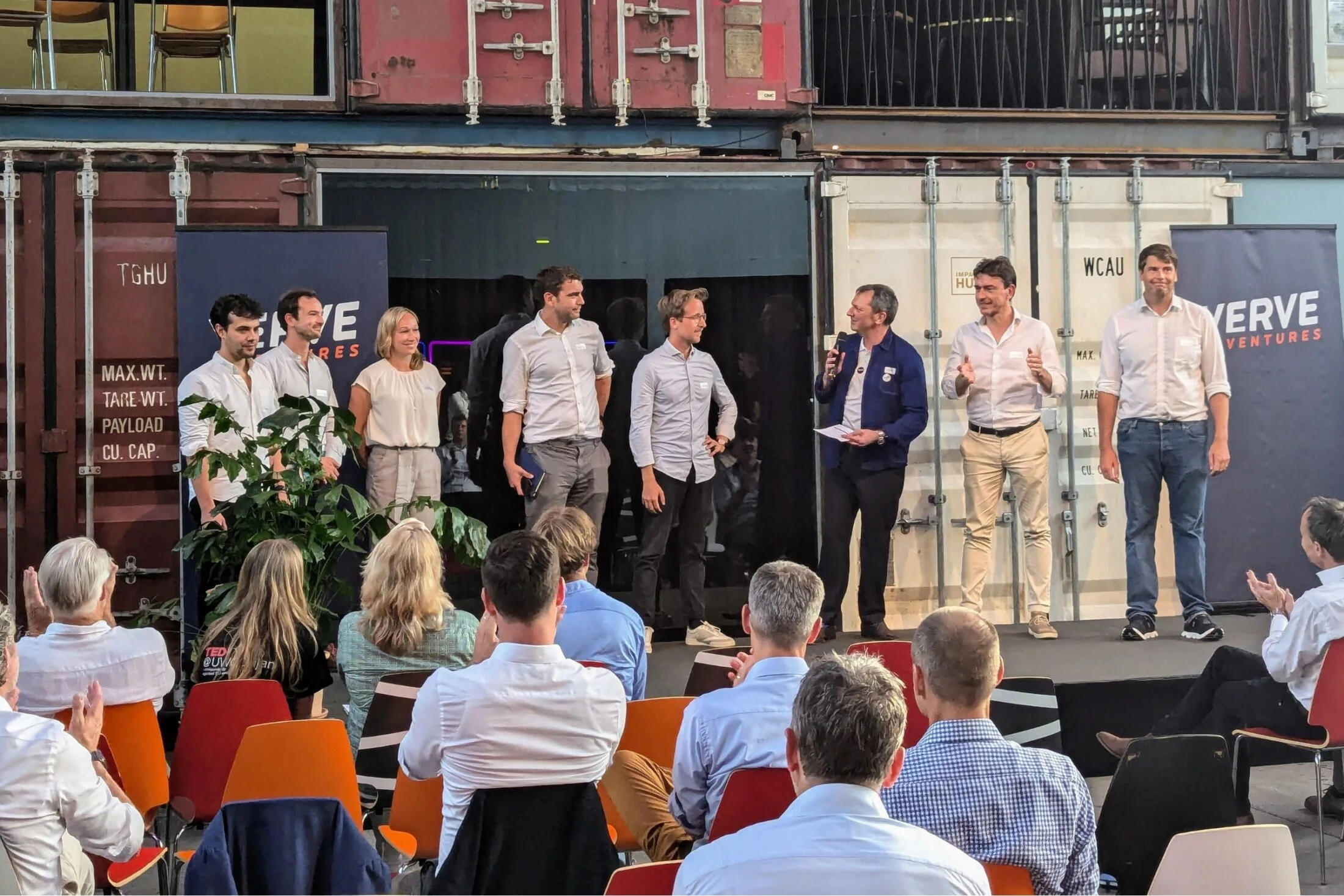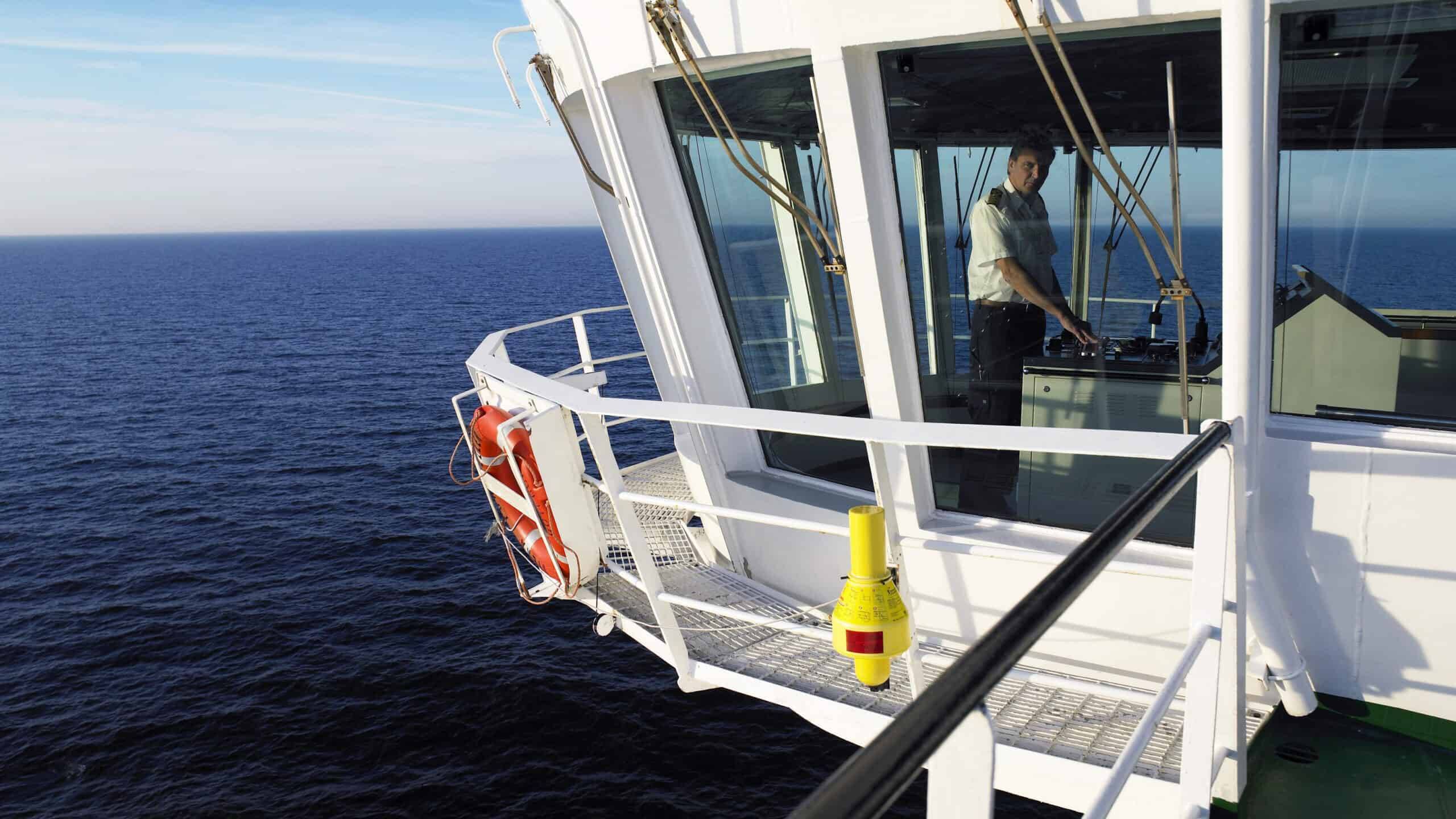Alaya offers a platform for employee volunteering and corporate giving. The software-as-a-service connects non-profit organisations with companies and their employees. Alaya is the result of a merger between two startups that were addressing the same issue: how to engage employees by connecting them to philanthropy and volunteering, and giving them a purpose. In this interview, Alaya’s co-founders André Abreu and Niklas Van Neyghem explain what impact their work has in the corporate world.

CEO and Co-founder, Alaya
André Abreu is CEO and co-founder of Alaya. He’s originally from Brazil and has been in Switzerland for about ten years. André studied International Relations and have worked in Human Resources and sales, both in Switzerland and in Asia. Eventually, he decided to quit that world and create Hope it Up, which offered employee social engagement programmes.

CTO and Co-founder, Alaya
Niklas van Neyghem is co-founder, CTO and Chairman of Alaya. After his studies in Engineering, he co-founded a start-up called Share A Dream, a digital platform that would connect non-profits with volunteers. It later pivoted towards companies. After a year, he found André’s company, which was working in a very similar field, and decided to merge the companies on January 1, 2018, as Alaya.
What does the name “Alaya” mean?
NVN: It means “universal consciousness” or “universal soul” in Sanskrit. Our logo is a hummingbird. Do you know the legend of the hummingbird? Many animals live in the forest. One day, it starts to burn, so the animals run out. From a hill nearby, they watch their homes burning, unsure what to do. The only animal to react is the hummingbird. It flies to the river and, with its tiny mouth, carries over water to the fire. Back and forth, drop by drop, it tries to extinguish it. The lion stops it and says: “You’re crazy, you’re never going to stop the fire with those drops”. The hummingbird replies: “Yes, but if everyone does their part we can stop the fire together”.
How does this legend relate to your company?
It is the philosophy behind Alaya: with a digital platform, we combine the small actions of users around the world into one big impact that really makes a difference.
“We combine the small actions of users around the world into one big impact”
What was your starting point when you established Alaya?
NVN: In our research, we observed that corporate social responsibility (CSR) was very top-down. At the end of the year, a company might decide to donate to an NGO or do one day of volunteering for another. With our digital platform, we turn it upside down and it becomes a bottom-up approach, which allows employees to participate. It democratizes CSR. Suddenly, it is not just good for marketing and communications; it also has benefits for HR and employee engagement.
How do NGOs benefit from being matched with companies?
NVN: One of NGOs’ biggest needs is volunteers, especially volunteers with specific skills. When you work with companies, you have this big pool of skills; for example, you can match an NGO with an accountant from a private bank. The NGOs gain access to a pool of resources that they cannot get by simply reaching out to the public. Done on a large scale, it has a major impact.
What are the benefits for the companies?
AA: For companies, it is a great opportunity to connect employees to their values, to retain them, to make them more loyal and to improve employer branding to attract better candidates. We know that candidates are looking for companies that are socially responsible and want to work for them. They value this kind of investment by companies.
From your perspective, what is missing and how does Alaya fill the gap?
NVN: One of the big problems is that most companies either have nothing in place or they have one or two people trying to organise things manually by sending out emails or trying to find NGOs. There is so much untapped potential when it comes to facilitating all the volunteering and giving programmes happening inside a company. Alaya replaces this manual process with a social network. It gives companies a single place where employees can go to give or volunteer. The participation rate explodes because companies suddenly have a dedicated place for this.
AA: All this tracking and reporting is untapped potential. Many companies simply donate; for example, they give $100,000 to charity. We say to them: “That’s great; you have a budget of $100,000, but how about involving your employees? Make them choose the project. Make them suggest new ones. Offer a one-to-one matching programme, so that they raise $100,000 and you match it with $100,000”. At the end of the day, it is the same cost for the company, but the charity gets $200,000 and everyone is involved in the process.
What type of social engagement does Alaya support, locally and further afield?
AA: We allow four types of activity on the platform. Firstly, donations. These can be from the user to a project that he or she is passionate about, a donation from the company, or a fundraising page saying “I want to run the London marathon and raise CHF 1000”, which colleagues and family can donate to. Secondly, skill-based volunteering. This might be an accountant from a bank helping an NGO work on their budget, or someone in the marketing department helping it set up a Facebook page, or someone who is good with languages helping translate its website from English into French. A big advantage is that this can be done remotely. Thirdly, field volunteering. This is mostly done in a team, so there is a team-building component. It might mean cleaning a park, distributing soup at a homeless shelter or donating blood; all those things that are done locally in the community. Today we have users in about thirty countries, so we have ones volunteering locally in Singapore or in London. Finally, object collection. This involves organising a collection of objects at the company, which are then sent to an NGO. It can be old smartphones, clothes, toys, and so on.
How do you choose the charities?
AA: It began with us reaching out to charities and asking them whether they need help. Now many charities reach out to us to ask for help. We have a series of criteria that charities need to meet before being accepted for an assessment. As part of the assessment process, charities answer a series of questions and provide documentation before they can join the network. This ensures that we only work with the best and most trustworthy charities out there.
How do employees use the platform?
NVN: Firstly, there is the social network aspect, where employees have a newsboard like on Facebook or LinkedIn and can see all the social activity at the company. They can see what their colleagues are doing; for example, that one in Singapore just donated, or that another in London just did two hours of volunteering. They can like, share and comment, helping create that movement of doing good inside the company. Secondly, there is the matchmaking aspect, linking employees to projects that make sense for them. We provide content that focuses on different causes – the environment, animals, education, health, and so on – and the type of activity. Everyone can find the project they are passionate about and the way they want to help.
Companies are charged for using the platform, but charities are not?
NVN: Exactly. Charities never pay to get access to the platform. That is part of our mission of also giving smaller charities the possibility to get that visibility. On the company side, we have a set-up fee and then a subscription-based model. They pay for monthly or annual subscriptions based on the number of employees that want access to the platform.
How do you measure the impact of companies’ actions?
NVN: The first thing we measure is the output of the platform; what is done through or facilitated by the platform. We measure three different KPIs: the amount of money raised, the number of volunteering hours and the number of objects collected for NGOs. This is combined into projects that are completed for NGOs.
And the impact at the company?
AA: We measure the impact using surveys. For example, we measure how many people at a bank have discovered volunteering or started to donate to charity. We can check whether, thanks to a company programme, employees are donating more and how that affects their relationship with their employer. Do they value this kind of programme at the company? Are they more likely to recommend their company to other people? This provides very important insights for the company.
What feedback have you received from users, companies and NGOs?
AA: We only see things increasing: more missions, more people participating and better feedback from NGOs about the help they are getting. At the user level, we hear about how their experiences through the platform have connected them to the company’s values and culture. At the company level, we are doing interviews to find out how the platform helps them facilitate engagement.
How does employee participation at companies that use the platform compare to the European average?
NVN: On our platform, the participation rate for employees is around 21% on average, with considerable variation between companies. The European average is somewhere between 0% and 10%, according to the European Commission. This shows that Alaya can really increase the average participation at companies.
What is your approach to expansion?
NVN: Most of our current operations and clients are based in Switzerland. We naturally expand with our clients there. In many cases, we first sign a contract with a company in Switzerland, but very soon they want to make the programme global. Earlier this year, we opened an office in France and have our first clients there. With this investment, we want to intensify business development in France and in Germany.
What are your plans for Alaya in 2020?
AA: This year, we grew to our team from 9 to 17 and more than doubled revenues and clients. The number of volunteering hours on the platform have increased threefold over the last year and we have recorded more than 100’000 hours and over 1’000’000 CHF in donations. Next year will be about further recruitment. We want to grow the company to 30 employees and expand our operations to France and Germany. We will also have a big focus on technology to make our platform and service scalable and adapted to a large number of users across many different countries.
Written by
Investors

Our sophisticated investors include visionary family offices, leading wealth managers, institutions, founders, and senior executives. These individuals and organizations are all committed to shaping the next generation of innovation.
More News
The Start of a VC Journey
Let me take you through my journey to becoming a Visiting Analyst at Verve Ventures. I’m currently in the middle of my 6 months stay here, so I’ll focus on my questions before joining a venture capital fund, how I got in, and how it’s been so far.
“We think
in decades”
Stena (Switzerland) joins Constructive Venture Fund as the fifth founding partner. In this interview, Andy Boehm and Per Hellberg explain why one of Sweden’s largest owners of real estate invests in venture capital and how they can contribute more than just capital to a startup’s success.
We’re now called Verve Ventures
Europe’s leading digital startup investment platform formerly known as investiere is called Verve Ventures. Verve Ventures has become one of the most active venture capital firms in Europe.


